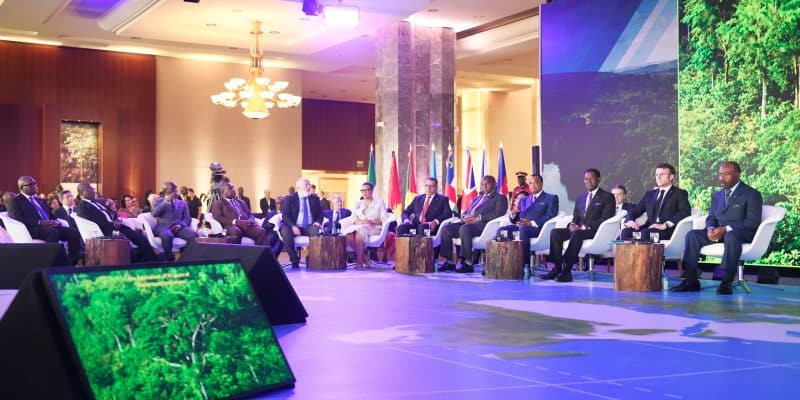Meeting in Libreville, Gabon, on 1 and 2 March 2023, heads of state, including France's Emmanuel Macron, companies, organisations and researchers committed themselves to preserving the equatorial forests. They adopted the Libreville Plan to stop deforestation as a solution to limit global warming.
A few hours before his departure for Libreville in Gabon, French President Emmanuel Macron announced his new vision for relations between France and the countries of the African continent. As part of this policy, France will support climate action in Africa. This is why Emmanuel Marcon co-organised the One Forest Summut on 1 and 2 March 2023 with Gabonese President Ali Bongo Odimba.
This meeting brought together several heads of state and government, including Faustin-Archange Touadéra of the Central African Republic, Denis Sassou-Nguesso of Congo, Teodoro Obiang Nguema Mbasogo of Equatorial Guinea and Carlos Vila Nova of Santo Domingo. Focused on the preservation of tropical forests and biodiversitý, this summit was an opportunity for leaders, experts and invited personalities to examine the mechanisms and means to be implemented to reconcile forest preservation and economic development.
The Libreville Plan
The decision-makers present in Gabon thus launched the Libreville Plan. This initiative, which is inspired by the main resolutions of the 27th United Nations Conference of the Parties on Climate Change (COP 27), “translates into a commitment by the Parties to implement a fair agreement between forest countries and the international communitý to reconcile environmental ambition and economic development,” says the Presidency of the Gabonese Republic.
Read also- COP15: the agreement provides $30 billion per year for biodiversity
Several countries on the African continent must reconcile economic development and forest preservation. This is particularly the case in the Democratic Republic of Congo (DRC), which has just auctioned off several oil and gas blocks. Beyond the production of fossil fuels, environmental organisations are criticising the DRC government’s desire to exploit deposits in the heart of the equatorial forest, considered to be the planet’s second green lung after the Amazon in South America.
Positive Conservation Partnerships
The Libreville Plan should certainly contribute to finding the right equation for Africa’s development, while avoiding deforestation, with different contexts in different countries. “There is no better investment today than investing in our forests. We need to make people aware of this and we need to draw the consequences. All the consequences. So that ecological utilitý finally rhymes with economic profitability,” pleaded Gabonese President Ali Bongo Odimba.
Read also- COP15: Southern countries ask for $100 billion per year to protect biodiversity
Among the main commitments of the One Forest Summit are also the Positive Conservation Partnerships (PCP). This initiative will be endowed with a 100 million euro fund and a mechanism for remunerating countries that are exemplary in preserving forests and safeguarding their vital carbon and biodiversitý stocks, via “biodiversity certificateś. Gabon, which is 90% covered by the equatorial forest, should benefit greatly from the PCP. This new step forward is welcomed by French President Emmanuel Macron, who wants to turn the One Forest Summit into an annual event in order to focus global climate action on preserving the main carbon sinks constituted by large forest areas.
Private sector commitments
The fund launched under the PCP will be financed by France (50 million euros), Conservation International (30 million euros) and the Walton Foundation (20 million euros). This mechanism is also an alternative to the forest carbon offsetting system, which is increasingly being questioned by environmentalists who point to certain abuses, in particular “greenwashing”, a dubious communication and marketing method used by several multinationals to erase the environmental impact or negative carbon balance of their activities.
The contribution of the scientific community is also necessary for the preservation of forests. In Libreville, for example, the scientific project “One Forest Vision” was launched to measure the net carbon sequestration balance and map the most vital carbon and biodiversity reserves in the Amazon, Africa and Asia to the nearest tree over the next five years.
And at the end of the One Forest Business Forum, the 10by30 was launched. The strategy of business leaders from the three forest basins (the Amazon Basin, the Congo Basin and South East Asia) aims to create 10 million jobs by 2030 in activities related to the sustainable use of tropical forests, and a series of first concrete commitments from companies.
Jean Marie Takouleu







